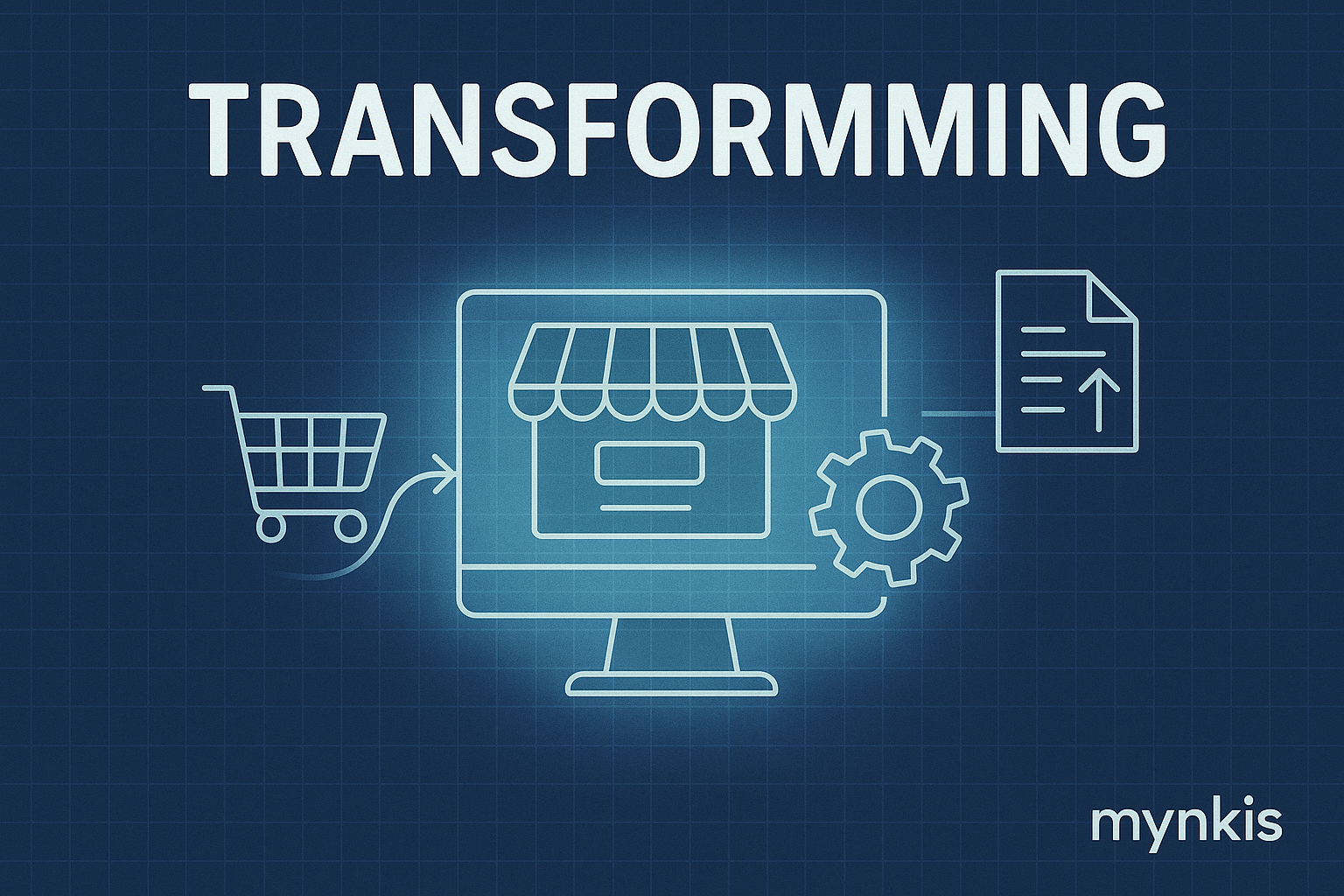Schedule a Demo
E-commerce has revolutionized how retail businesses operate. Over the years, I've witnessed retailers evolve from static online stores to dynamic platforms that offer immersive experiences. This evolution hinges on integrating Search Engine Optimization (SEO) into the core of a website's infrastructure. Without leaning on ads, these SEO strategies enhance visibility and drive traffic more organically and cost-effectively.
When dealing with e-commerce clients, I find that custom software development often underpins their online stores' success. Generic platforms can serve small retailers well enough, yet enterprise-level solutions demand something bespoke. Custom solutions not only meet specific operational needs but also enable a tailored SEO approach that significantly boosts a store's online presence. The key is to ensure this software supports, rather than hinders, SEO efforts.
Before even a line of code is written, software consulting sets the stage. In my experience working with retail clients, I stress the importance of a thorough understanding of business objectives and challenges. This understanding guides the creation of an e-commerce platform designed to excel in SEO performance and user experience. Successful software projects start with listening and analyzing, ensuring the tech aligns with business strategy.
Effective SEO begins at the inception of an e-commerce platform's design and development. Integrating SEO practices in the groundwork means constructing URLs that are index-friendly, optimizing for mobile usability, and ensuring load times stay snappy - all critical for retailer rankings. It’s about building your platform with the Google crawl in mind. Think of it as laying down the digital roads on which search algorithms travel through your site.
Beyond keywords and meta tags lies the real engine of technical SEO, which is crucial for retailers. Technical SEO involves site architecture, schema markup, and structured data signals. These aren't just features; they are the backbone of an SEO strategy built into your platform at a fundamental level. Each of these contributes to making your site a beacon for relevant traffic by optimizing it in ways that search engines notice and reward.
The user experience on your e-commerce site not only keeps customers engaged but also impacts SEO rankings significantly. I advise retailers to implement unique features that enhance the shopping journey - be it through personalized content, seamless navigation, or improved search functionality. When visitors can find what they need quickly and easily, they're more likely to stick around, thus signaling to search engines that your site provides a valuable experience, boosting your organic rankings.
When consulting for software needs in retail, I take a consultative approach that connects business goals with technical capabilities. It's more than suggesting tech solutions; it's about comprehending your business inside out, outlining potential solutions, and picking paths that ensure your e-commerce site meets immediate sales needs and also future innovation requirements. This consultative phase ensures your software investments are strategic and scalable.
Black Friday, Cyber Monday, and other peak times pose both a challenge and an opportunity for retailers. Through software engineering consulting, I help businesses architect systems that can handle traffic spikes without compromising performance. Beyond seasonal adjustments, a well-designed e-commerce platform offers the flexibility to incorporate new features and adapt to changing market dynamics as the business grows.
In-depth analytics provide insights into not only user behavior but also the effectiveness of your SEO efforts. As a consultant, I guide retailers to set up advanced analytics platforms integrated directly into their custom software solutions. Understanding how users interact with your site's features and pages enables you to refine SEO strategies continually, ensuring your e-commerce platform thrives under the search engine spotlight.
SEO can't be your only concern when building an online store; security is paramount. Retailers need to assure customers their data is safe, which means embedding best security practices into custom software. I often stress that while planning an SEO-driven architecture, we also need to lay down a robust security framework to protect against breaches, maintain compliance, and bolster customer trust - which indirectly uplifts SEO.
Software consulting doesn't stop after launch. Regular updates and maintenance are vital for keeping SEO intact and for adding new functionalities that keep the platform relevant and optimized. Consulting on this aspect means scheduling systematic reviews, often updating software architecture to keep pace with SEO best practices and software trends. Keeping your online store on the cutting edge is no accident; it's the result of continuous, thoughtful service.
AI and machine learning are powerful tools for SEO enhancement in e-commerce. From improving site search and personalizing product recommendations to predicting user behavior, these technologies can drastically increase relevance and user engagement on your site. As a consultant, I often recommend retailers consider these technologies for their custom platform. Machine learning algorithms can refine on-the-fly SEO, tailoring the experience to individual users.
An e-commerce platform is more like a living organism than a static product. To ensure it keeps growing and thriving, ongoing engagement through software engineering consulting is essential. Adaptations to new search engine algorithms, user feedback, and market trends are all part of the journey. I've seen many retailers who maintain a dialogue with their consultants post-launch do far better in the long run with respect to SEO and overall platform success.
The landscape of e-commerce and SEO is ever-changing. As a consultant, I prepare retailers for this future by fostering an environment where innovative technologies and best practices are continuously integrated into their custom software solutions. Understanding where the digital retail world is headed helps design platforms that not only meet today's SEO standards but are ready to adapt to tomorrow's challenges and opportunities.
